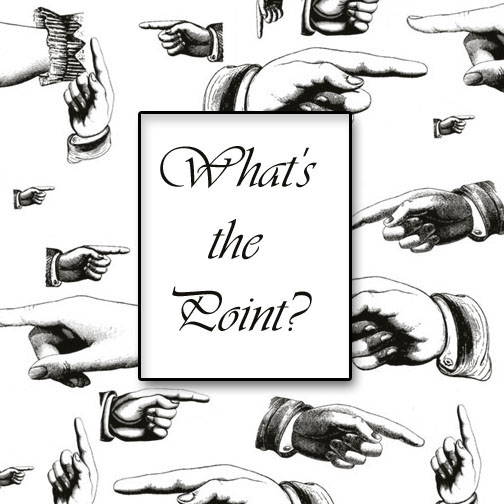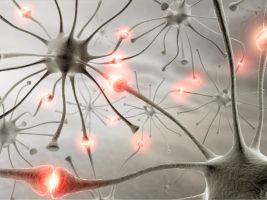This post is in response to the article by Ben Orlin, ‘When memorization gets in the way of learning.’ I posted it on twitter several weeks back, and Will Burn rightly asked what my problem was with it. It’s a well thought out piece, and I think Orlin says a lot of the right things. However, it reads as if written by someone who’s never picked up a book about human cognition, and has no idea what role memory plays in ‘learning.’ The arguments feel ultimately colloquial; the disgruntled teacher frustrated with teaching kids how to memorise test answers, rather than teaching them anything about the damned subject. Valid, but so old hat, and the solutions offered aren’t solutions at all.
First, two quotes that have moved, and guide me:
“The aim of all instruction is to alter long-term memory. If nothing has changed in long-term memory, nothing has been learned.”
I read this during the Christmas holiday, two years ago. It comes from Kirschner, Sweller and Clark’s 2006 paper. I’d been teaching for four months. Despite weeks of pointless musing and speculation as to the purpose of education – at the behest of our academic tutors – with lots of polite nodding and relativist agreement that ‘yeah, maybe we’re all right,’ none of the usual suspects had offered me much guidance as to what I had to do on that first day in the classroom; or the many weeks after for that matter. You know the ones:
To ensure young people are fit for employment
- To produce well-rounded individuals
- To produce independent learners
- To gift children with a lifelong love of learning
- To enable everyone to serve as a fully democratic citizen
- Etc.
The list obviously goes on. While those above are repeated and echoed ad tedium, a curious addition I later heard was ‘The transmission of culture,’ followed by the increasingly popular ‘to expose young minds to the best of all that has been thought, and written.’ In these last two there was something more… concrete, something more tangible. I appreciated this, but it still didn’t help me with my lessons the next day.
Of course the problem with this exercise is that it is fatuous. Of course we all agreed that all of the above were valid; how could we not! Maybe each of the above is a better answer to the rhetorical question as to the ultimate goal of education, but once again, not one says anything therefore about what teaching should look like tomorrow; it is the languid philosophical debate of the cognoscenti, who need not trouble themselves with the gritty realities of teaching in a classroom.
What is the purpose of education?
None of this is to say it’s an unworthy discussion, just not one that’s going to be any use to a new classroom teacher, and therefore perhaps not one that we should have spent so much time on. By contrast, the quote above made is crystal clear what my role was: build long-term memory.
Suddenly, for the first time, I had direction.
My second quote comes from a Year 10 girl. I had taught her before, though only one lesson per week, in a low-middle set when she was in Year 9. I knew her reasonably well; she had also been in my form. Without going into much detail, she was a classic underachiever; I’m sure you know well the type.
A colleague told us something she said to him:
“What’s the point of learning this?”
Ah well yeah of course, the usual refrain of the truly unengaged. ‘What’s the point, when will I ever need this etc.’ To my surprise, that’s not what she said. To my mind, what she said was far more astute, and somewhat heart-breaking.
“What’s the point of learning this? Next week we’re just going to move on to something else, and we’ll forget it all anyway.”
She wasn’t even at the level of finding what she’d learned pointless; she was fully prepared, fully expecting to learn, and then forget. Surely this is the ultimate in hopelessness? I will work hard, I will learn, I will then immediately forget. Why bother.
What’s the point of learning anything, if we just forget it the next day?
I sat down to help her once some months later, as she worked on a GCSE paper. The question asked her to solve the equation: 2x – 4 = 10. She asked me what to do. I looked at her for a moment in disbelief. One of my enduring memories of this girl had been from my early months of teaching. Taking this group for that one lesson in the week, barely sure what I was supposed to do with them, no idea what they’d been taught up to that point, and somehow trying to help them learn how to solve equations, it turned out she already knew. She could turn an equation like that one into an inverse function machine, and arrive at a solution, with fluid ease. Like many underachievers in mathematics, once she mastered something, she was happy to do it all day. I’d watched her in that lesson effortlessly plough through a good couple of dozen equations exactly like that one, with 100% accuracy. She had undoubtedly ‘learnt’ how to solve equations by most people’s definitions. I told her this; I explained that I remembered watching her solve dozens of equations like that not so long ago. She looked at me perplexed. She couldn’t even remember that she used to know how to do it.
Does memorisation get in the way of learning? Memorisation is learning!
We can talk about ‘understanding’ and ‘problem solving’ and ‘creative thinking’ some other time, no problem. To start, though, let’s at least acknowledge the point made by Kirschner et al.:
“If nothing has changed in long-term memory, nothing has been learned.”
Because what my colleague didn’t know, and couldn’t have known, is that it’s through no fault of this child that they expected to forget, or that they forgot what they once knew. Yes there are those who shun schooling and education, pay no attention, do little work; but even for those who work hard, they will be doomed to forget so much of what they learn, because of what we as their teachers are doing, and how we as the education system are structuring their time and experience in schools.
Though profoundly disturbing, this is in equal measure an exciting opportunity. Imagine schools where things weren’t being incessantly retaught, year after year; where teachers’ resigned laments about how kids can never remember what they did yesterday, were a thing of the past; where the old jokes we’ve all made about forgetting everything the moment we left the exam hall, were no more.
An example I frequently use from my own experience is the proof that the square root of 2 cannot be written as a fraction. Over the past three years, I’ve seen this proof some 4-5 times. I understood it perfectly each time. I have a vague recollection of what’s involved. I cannot recall it. If I cannot recall it, and teach it to someone else… can we really say that I ever learnt it? Would that really be the correct language to use, to say that I once learnt the proof? Perhaps at best we would allow that I learnt it, but then forgot it. Built into our language then, is the idea that to have something memorised, that is to say, to be able to recall it from memory, is to have learnt it.
We can build an education system that empowers minds and breeds intellect at a rate we’ve never seen before, but it must begin by accepting one fundamental premise:
Memorisation is learning.
If not the whole of learning, it is the first step.
Memorisation is learning
So now, if that’s true, why do so many experienced teachers baulk at the idea? Why does Ben Orlin lament memorisation’s role in education? Why do so many, quite rightly, look to the problems in our system and point to memorisation for the regurgitation onto exam papers as a problem?
I’ll try to speak to that next, at least in part, by looking directly at Orlin’s piece on memorisation and learning.




Excellent post. Being a promoter of “Independent Learning” I have no problem, and only support for this. Whilst my teaching method seeks to elicit student’s own responses, and challenge them to build up skills so they can “master the processes of becoming informed” for themselves, whatever we discover in the lesson then needs to be remembered. I do as much work as I can looking at strategies to do this and have really enjoyed putting strategies from Lemov’s Practice Perfect into action, which I have found help a great deal. I also am keen to extend “memory” beyond subject content and actually get them to remember the skills and processes I require them to exercise, so that when I am not there, they will not revert to uncritical, unskilled blundering.
Reblogged this on The Echo Chamber.
An excellent starter activity. Waiting in anticipation for the main activity.
Like the neuron graphic.
Worth noting that you were probably only able to really understand the proofs about the square root of 2 because you were able to draw on your long-term memory of concepts which underpin them. Without that, even the proofs themselves would have been meaningless.
Oh completely! Knowledge begets knowledge, and whatnot.
A more interesting question really – when is it important that we immediately understand, and when is it not? Think that’s going to have to be the topic for the next series. Understanding the answer to that question will help us deepen our taxonomy of mathematical concepts, and therefore inform our practice depending on what it is we are trying to teach each time. The root 2 proof is such an interesting case because there is nothing to do with it once you’ve understood it – there’s no direct ‘application’, as it were!
Memory is more plastic and analogue than you might be describing here. You may not be able to recall the detailed proof that the square root of 2 cannot be expressed as a fraction, but you have stored an essential aspect of that “truth” in your long term memory, i.e. that it cannot be expressed that way.
Facts (incontrovertible, true/false elements of knowledge) are only one part of knowledge and learning. A very small part I would say. What stays with you in your long term memory is often filtered through what you as a learner deem relevant (or interesting, which some would argue are close proxies).
Filing everything into long term memory isn’t sensible. You don’t do that under normal conditions, even with a film you love or a face you believe you recognise intimately. As in all things it is a matter of degrees.
Overall this is a good topic for discussion. Too much rejection of one absolute (memorise for tests) which leads to a different absolute (just learn cool stuff and never test it) is not useful.
Yup, memory is certainly more plastic than there’s been space to talk about here. That said, while having seen the proof is better than not, it’s still not as useful to me as being able to recall it.
Filing everything into LTM obviously isn’t feasible. There’s more on that in part 2. I’d agree that factual knowledge is just one part of what we can learn, but wouldn’t agree that it’s a small part. Rather, since it often serves as the foundational component of everything else, it’s probably the biggest part of what we have to learn – while we’re young especially. Everything else comes from it.
The relevancy thing is important, but not in the way that most people think, unfortunately. Relevancy is often interpreted in terms of what teachers guess kids care about – rather, it’s our job to signal what is important/relevant through how and what we teach over time. Since more often than not our curricula are designed with an almost ‘fire and forget’ structure, we unwittingly send a very real signal to pupils that what we teach them is unimportant, and okay to forget, and so through no fault of their own, they do.
Thanks for this, Kris – always enjoy your posts.
What do you think to the idea that knowledge CHANGES you, even though you may not remember exactly what was learnt? Thinking about O level History – don’t remember much of the content of the course, to be honest (it was a LONG time ago and it wasn’t my favourite subject) but am sure the process of studying History at that level changed me in some ways – eg in my capacity for empathy. I think you continue to change you while ever you’re still learning (what I’m learning now through blogs and Twitter is changing me) even if I don’t remember the detail of everything I read (partly because I’m not making a specific effort to memorize/consolidate as I don’t need to reproduce the info, eg for an exam).
Just a thought.
I’m sure pretty much anything we do in life changes us in some ways. With respect to your history A Level, for my part I try as much as possible to use the word ‘recall’ – this is because Bjork’s theory states that once a memory is formed, it is never lost, which is quite different from the everyday understanding of memory as something we have, or we lose and thus forget.
So in the case of your history course, you may not be able to recall (i.e. access) the memories from that time, but perhaps you could do so if provided the right cues. In that respect, what you learnt then could still influence how you interpret and assimilate new knowledge, perhaps without your even realising it.
The model of human memory put forward by Bjork and his team is fascinating, and so much more complex than how we typically think about it!
Thanks – more food for thought.
And it was O level (pre GCSE days) – A level History really didn’t appeal!
Great post, something I had not considered before today (when really it is quite obvious.)
Pingback: What I learned from learning the periodic table and other thoughts on memory and retention of historical knowledge and understanding | Improving Teaching